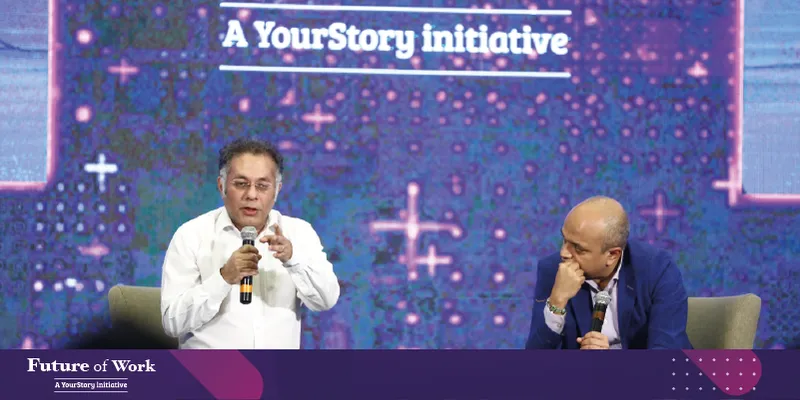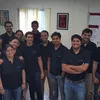Future of Work 2020: ‘By 2045, the world’s biggest company will be a learning entity’
At the third edition of YourStory’s Future of Work conference, Sandipan Chattopadhyaya of Xelpmoc Design and Suman Bose of The Futures Project raised some crucial questions about the state of skilling in India.
According to a 2019 India Skills Report, only 46.21 percent of graduates were job-ready with the requisite skills for employment in today’s market. While this is a significant increase from 33 percent in 2014, it still means that more than half of our graduates are still largely unemployable.
Skilling and upskilling are the need of the hour and were the key points of discussion on Day 1 of YourStory’s Future of Work event in Bengaluru.
Speaking about Products for Skill Gap Fulfilment for Skilling and Upskilling were Sandipan Chattopadhyaya, CEO and MD, Xelpmoc Design, and Suman Bose, Executive Board Member, The Futures Project.
Sandipan said, “We live in a very dichotomous time. On the one hand, we hear about unemployment and, on the other, we hear companies say that there are no skilled people who qualify for the jobs available.”

He added that educational institutes were unable to keep up and meet the demand of present and future needs. It is this combination of factors that has resulted in the huge gap in skilling and upskilling today.
Agreeing that the skilling gap was a growing challenge, Suman said, “It’s not an India-specific problem, but a global issue. We have this large morass of people looking for employment, but there is a massive skill mismatch between what the industry needs and what exists.”
He added that while 50 years ago, it took 25-30 years for industry and institutes to move and adapt to changing plans, it’s happening in under five years today.
Solutions for skilling
Speaking about the urgency needed to bridge this skill gap, Suman said, “The time is now. Unless we find a way to address this in the next 10 years, we will get older before we get richer, and that happening in a country with a population like India is a disaster we can’t even imagine.”
Drawing on his experience of building solutions for the startup space, where disruptions happen on a daily basis, Sandipan said, “First, find your target audience. The problem today is that we are trying to clone solutions and force-fit them to solve our issues. But, the problems we have in India are very unique.”
He added that there were three different avenues that need solutions.
Sandipan explained, “There is early-stage education (to a level where students were receptive enough to gather a sill), and continuous skilling development. These cannot be automated. It has to be explained by a person, and we are not really training our trainers. The third and most important part is ‘how do we train our trainers?’”
He also said that if we keep bad teachers away from students, they will not get paranoid about a subject. Another shortfall was that people were not trained in essential skills like working with a team, which is proving to be a challenge for several companies.
Hiring and opportunities
Today, companies spend a lot on hiring. “My experience in India is that if I have to get 10 people in the company in two-three years, I should look at hiring around 30 people. That’s a huge loss in terms of opportunity costs, infrastructure costs, etc," Suman said.
“The biggest opportunity sector today in India is Learning Tech. It’s said that by 2045, the world’s biggest company will be a learning company,” Suman said.
Speaking about how to identify the skilling issue, he said, “You cannot solve the world’s biggest problem, whether in healthcare, education, or anything, without being passionate. I believe that somewhere along the way, we are losing out on that passion across the world. In India, we have a great workforce, but our passion is lacking.”
He advised the audience that while building a solution for the future –whether it was in education or any other sector for that matter – one had to think “what you are going to do today that will impact the next 100 years”.
(Edited by Saheli Sen Gupta)
A big shout out to our Future of Work 2020 Sponsors: Alibaba Cloud, Larksuite, Vodafone Idea Limited, Gojek, Adobe, , , , , , , Maharashtra State Innovation Society, and GetToWork; and our Knowledge Partner: Ascend Harvard Business Review.










